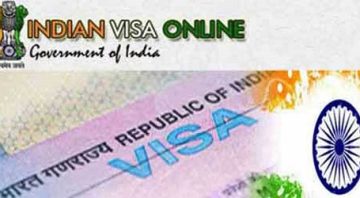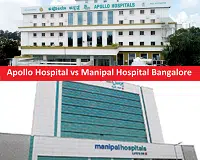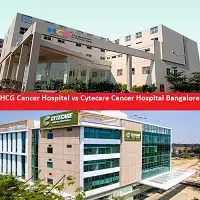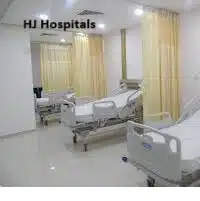
Gastroenterology in Kenya
Searching for the best treatment for gastroenterology in Kenya and unsure about the gastroenterology cost in Kenya that will suit you best? Or are you looking for the location, services, and best treatment gastroenterologist doctors in Kenya? Unfortunately, there are few gastroenterologists; many are situated in Kenya’s capital, Nairobi. They cure diseases for gastroenterology in Kenya, such as acute and chronic pancreatitis, irritable bowel syndrome, stomach cancer, peptic ulcers, esophageal cancer, liver cirrhosis, hepatitis A, B, C, and E, etc.
In Kenya, the hospitals have a gastroenterology section that ensures exceptional care for patients with digestive system disorders and gastroenterology. The services provided by gastroenterology hospitals in Kenya are outpatient consultation services, colonoscopy and endoscopy methods, etc., with highly expert and qualified specialists and professional medical staff in Kenya.
The price estimate for gastroenterology in Kenya is the hospital location and the specialist selected. The other factors that affect gastroenterology cost in Kenya are the procedure for treatment. For instance, endoscopy is more costly in private hospitals than government-owned centers. Endoscopy is treated for a gastric tract condition. We can remove all your doubts at expertchikitsa.com, where one can browse the best treatments for gastroenterology in Kenya.
Gastroenterology Cost in Kenya
The cost of endoscopy in Nairobi is about Ksh. 150,000 on average. The gastroenterology cost in Kenya comprises the diagnostic charges and the procedure price. Every hospital in Kenya charges varies for diagnostic Ksh: 15,000.00 to Ksh: 40,000.00, PEG tube insertion Ksh: 30,000.00 to Ksh 60,000.00. While different types of endoscopies have different prices depending on the site in the body and the technique used.
The upper and lower endoscopy cost is between 30 000 Ksh – 50 000 Ksh and costs between 45 000 Ksh and N60, 000 Ksh, respectively, depending on the clinic or hospital option. Therefore, the reasons for choosing Nairobi, Kenya, for undergoing the endoscopy process are affordable, a procedure done by expert gastroenterologists, and hospitals are provided with advanced facilities.
Gastroenterology Cost in Kenya
| Gastroenterology in Kenya | Average cost (USD) | Average Cost in Kenya Shilling (KES) |
| Capsule Endoscopy | $3,000 | Ksh 360,000 |
| Colonoscopy | $2,500 | Ksh 300,000 |
| Colonoscopy with Biopsy | $3,500 | Ksh 420,000 |
| ERCP | $3,800 | Ksh 456,000 |
| Endoscopy | $4,000 | Ksh 480,000 |
| GERD Acid Reflux Surgery | $4,500 | Ksh 540,000 |
| Gall Bladder Surgery | $5,000 | Ksh 600,000 |
| Gallbladder Removal | $3,300 | Ksh 396,000 |
| Gastrointestinal Bleeding | $1,800 | Ksh 216,000 |
| Gastroscopy | $1,900 | Ksh 228,000 |
| Irritable Bowel Syndrome | $2,500 | Ksh 300,000 |
| Laparoscopic Anti-Reflux Surgery | $4,500 | Ksh 540,000 |
| Liver Disease Consultation | $100 | Ksh 12,000 |
| Liver Disease Evaluation | $800 | Ksh 96,000 |
| Polypectomy | $3,500 | Ksh 420,000 |
| Total Pancreatectomy | $6,000 | Ksh 720,000 |
What is Gastroenterology?
Gastroenterology is a field of medicine and subspecialty of internal medicine that emphasizes digestive system problems or the gastrointestinal (GI) tract and the liver.
Liver gastroenterology includes a detailed analysis of the gastrointestinal organs, movement of material in the stomach and intestines, digestion and absorption of nutrients in the body, and waste removal from the body and the liver.
Who are Gastroenterologists, and What do They Treat in Kenya?
A gastroenterologist is a medical expert who focuses on problems that affect the organs and anatomy of the digestive system. They are often confused with colon or rectal surgeons. Though gastroenterologists do a variety of procedures, they do not perform surgery.
Gastroenterologists do procedures such as liver biopsy and endoscopic (“scope”) inspections of the esophagus, stomach, and small and large bowel.
Likewise, the Gastroenterologist often works with surgeons before and after an operation to select the best procedure for a patient and gives follow-up for treatments.
Gastroenterologists’ role is in the diagnosis, curing, and managing the people with GI problems like:
-colon polyps
-colon cancer
-celiac disease
-hepatitis
-heartburn, or gastroesophageal reflux (GERD)
-gallbladder disease
– irritable bowel syndrome (IBS)
-pancreatitis
Types of Gastroenterology Treatments and Procedures
Let’s check out the treatment for Gastroenterology in Kenya. These are:
–Capsule Endoscopy: Capsule endoscopy is also called wireless capsule endoscopy or video capsule endoscopy. It applies a tiny wireless camera to get pictures of the GI tract. The camera is placed in a tiny capsule-shaped tablet via which we can inspect portions of the GI tract, which is used to view the small intestine from where bleeding is in the intestine come out. Capsule endoscopy cost in Kenya is Ksh 360,000($3,000).
–Colonoscopy: The doctor inserts the slender scope with a camera fitted into the bottom. It moves in the colon, rectum, and large intestine to detect polyps or bleeding conditions, discard any polyps, or take a biopsy. Colonoscopy is used to check for conditions like inflammatory bowel disease or problems that arise from the changes in the stools, abdominal pain, or blood in the stool—the procedure for colonoscopy costs in Kenya Ksh 300,000 and $2,500.
-Colonoscopy with Biopsy: The camera shows images to an outside monitor so doctors can examine the inner side of the colon. The doctor can also put tools via the channel to take tissue samples (biopsies) or eliminate polyps or other parts of abnormal tissue. It takes time of 30 to 60 minutes to do a colonoscopy. Colonoscopy with biopsy cost in Kenya is Ksh 420,000 whereas $3,500.
-ERCP: Endoscopic retrograde cholangiopancreatography abbreviated as ERCP. ERCP evaluates and cures bile, pancreatic ducts, and gallbladder conditions. Endoscopic retrograde cholangiopancreatography involves the detection of the cause of pain in the upper right abdomen or identifying acute pancreatitis. ERCP price in Kenya is Ksh 456,000 and 3,800 USD.
–Endoscopy: A long thin tube with a tiny camera fitted at the end goes via mouth to view the upper digestive tract or take a biopsy (tissue sample). Reasons for endoscopy are persistent heartburn, abdominal pain, vomiting, and other reasons. Endoscopy cost in Kenya is Ksh 480,000($4,000).
-GERD Acid Reflux Surgery: Gastroesophageal reflux disease surgery entails reducing or closing off the lower end of the esophagus to stop the acid reflux. Some surgeries for gastroesophageal reflux disease (GERD) procedures are performed as open surgeries via a cut in the abdomen, and laparoscopic surgeries include small incisions. Surgeons can also use non-surgical possibilities that are done as outpatient procedures. Medication and lifestyle changes, like diet changes, are the first steps in treating GERD. Still, surgery could be a possibility if these changes do not benefit. Fundoplication, Linx surgery, Transoral incisionless fundoplication (TIF), and the Stretta procedure are used for GERD surgery. GERD acid reflux surgery costs Kenya Ksh 540,000 and $4,500.
-Gallbladder Removal: A gall bladder surgery, also called a cholecystectomy—the surgery where the gall bladder is removed. The gallbladder is a small organ beneath your liver located on the upper right side of the abdomen. It gathers a digestive juice called bile, built in the liver. Two types of surgery are used to eliminate the gallbladder, the laparoscopic method and the open (traditional) method. Gall Bladder Surgery and Gallbladder Removal cost in Kenya are Ksh 600,000($5,000) and Ksh 396,000($3,300), respectively.
-Gastrointestinal Bleeding: Gastrointestinal (GI) bleeding is a sign of a condition in the digestive tract. Reasons for GI bleeding include hemorrhoids, peptic ulcers, tears or inflammation in the esophagus, cancer in the colon, stomach, diverticulosis, diverticulitis, ulcerative colitis, and Crohn’s disease colonic polyps, and esophagus. Treatments for upper GI bleeding are truncal vagotomy, and suture ligation for a bleeding ulcer is an often-used operation in old age patients. Gastrointestinal bleeding surgery cost in Kenya is Ksh 216,000, while the average price is $1,800.
-Gastroscopy: Gastroscopy is where a physician uses a tiny camera fixed to a long tube (endoscope) to see the inner side of the upper gastrointestinal tract. It is suitable for detecting any upper GI illness, such as Crohn’s disease, GERD, gastric ulcers, hiatus hernia, celiac disease, and some cancers. Symptoms like persistent nausea, heartburn, and unknown stomach pain. Gastroscopy cost in Kenya is Ksh 228,000($1,900).
-Irritable Bowel Syndrome: Irritable bowel syndrome (also named spastic colon, irritable colon, IBS, or nervous stomach) is a functional problem where colon muscle contracts more or less frequently than in normal conditions. Some types of foods, medications and emotional stress are some issues that can cause IBS. IBS symptoms are abdominal pain and cramps, bloating, change in bowel habits, constipation, and diarrhea. Treatment includes avoiding excessive caffeine, increasing fiber intake, minimizing stress, taking rests/sleep, seeing which foods cause IBS, and hydrating well. The treatments of irritable bowel syndrome cost Kenya Ksh 300,000 and $2,500.
-Laparoscopic Anti Reflux Surgery: A Nissen fundoplication or laparoscopic Nissen fundoplication is a surgery to cure gastroesophageal reflux (GERD). In the process, a surgeon makes a sphincter (tightening muscle) at the bottom of the esophagus to control acid reflux, and this surgery. As a result, symptoms after the surgery of acid reflux reduce. Laparoscopic anti-reflux surgery cost in Kenya is Ksh 540,000 and USD 4,500.
-Liver Disease Consultation: Patients who develop signs of chronic liver disease such as jaundice, ascites, encephalopathy, muscle wasting, gastrointestinal bleeding, or coagulopathy those patients referred for a liver transplant. Some liver complications can be treated with lifestyle changes, like stopping alcohol or losing weight, which generally contains careful examine the liver function. At the same time, other liver issues are treated with medicines or might need surgery. Liver disease consultation fees in Kenya are Ksh 12,000 and $100.
-Liver Disease Evaluation: Liver disease diagnosis can usually be made using a history of the patient, physical examination, and laboratory tests. These liver tests are aspartate aminotransferase (AST), alanine aminotransferase (ALT), alkaline phosphatase (ALP), and total bilirubin. These tests are used to determine some liver conditions like the acute presentation of jaundice, suspicion of hepatitis, and asymptomatic elevation of transaminases. Liver disease evaluation cost in Kenya is Ksh 96,000($800).
-Polypectomy: In a polypectomy, a gastroenterologist will remove one or more polyps from the lining of the intestine. Polyps are noncancerous build-ups that may develop in the colon. The gastroenterologist will cut the polyps with wire loop forceps or apply an electric current to burn them in colonoscopy. Polypectomy cost in Kenya is Ksh 420,000 while $3,500.
-Total Pancreatectomy: A total pancreatectomy is a surgical process to cure chronic pancreatitis when other treatment methods are ineffective. In this procedure, the entire pancreas is removed, along with the gallbladder and common bile duct, parts of the small intestine and stomach, and most commonly, the spleen. Total pancreatectomy can be done jointly with an islet cell transplantation. The total pancreatectomy price in Kenya is Ksh 720,000($6,000).
Symptoms of Gastroenterology
Do you know the symptoms of gastroenterology and when to seek a gastroenterologist?
-Rectal bleeding
-Leakage or underwear stains
-Uncontrollable bowel movement
-Diarrhea
-Changes in bowel routine
-Stool color changes
-Dark-colored urine
-Heartburn (acid reflux)
-Pain in the abdomen and bloating
– Belching or excess gas
-Esophageal pain
-Vomiting
– Weight loss due to loss in appetite
-Fatigue
Gastroenterology Tests in Kenya
As gastroenterology covers an extensive range of health problems and different kinds of tests and procedures used to diagnose and treat patients. Checkout the gastroenterology tests below:
-Lab tests include a fecal occult blood test and stool culture
-Imaging tests such as X-ray exams
Barium Swallow Test (Esophagram)
-Upper GI Series
-Small Bowel Series
-Bravo PH study
-Barium Enema or Lower Bowel Series
-Esophageal dilation
-Esophageal manometry
-Esophagogastroduodenoscopy (EGD)
– Flexible sigmoidoscopy
-Ultrasound-Guided Liver Biopsy
Risk and Benefits of Gastroenterology
Gastroenterology treatments benefits are:
-Fast recovery
-Minimally invasive techniques give fewer complications.
– Helps diagnose the diseases early, so treatment begins sooner.
-It benefits people from losing weight.
Risk and Complications for Gastroenterology
-Complications of endoscopy procedure
Generally, endoscopy is very safe; but a few possible complications are:
-Perforation (tear in the gut wall)
-Reaction to sedation and Infection
-Bleeding
-Pancreatitis is a result of ERCP
–Complications of gastroscopy are few and occur very rare, such as
-perforation (puncture) in the stomach or bowel wall
-major bleeding is infrequent
Risk of Enteroscopy
These are highly uncommon such as:
-passage of the over a tube
-Perforation and bleeding
-the upper enteroscopy-associated risk is pancreatitis
-Colonoscopy’s significant risks are bleeding and perforation
Summary of Gastroenterology in Kenya
Let’s sum up: The price of various procedures and tests of gastroenterology varies in Kenya. Because of factors like the age of the patient. Always confirm and contact the hospital for an actual cost estimate and the best possible treatment in Kenya.
Don’t hesitate to visit and talk to a gastroenterologist if you see any symptoms. Then, follow the doctor’s advice about the lifestyle changes, and get colon screening done regularly to detect early for any possible diseases.
FAQs about Gastroenterology in Kenya
-Which foods to avoid if gastrointestinal problems occur?
These foods are spoiled or unwashed, spicy and hot foods, dairy products, acidic foods, and alcohol.
-Does GI endoscopy is painful?
A doctor may tell you to swallow as the scope passes in your throat. It can feel some pressure in the throat but no pain you feel.
– Can gallbladder removal make your life short?
Gall bladder removal surgery did not short your life expectancy.
– How do we identify the pain situated with pancreatitis?
A patient with acute pancreatitis feels seriously ill. The main indication of pancreatitis is a pain in the upper abdomen that can spread to your back.
-Can gastro symptoms show in blood tests?
If inflammatory bowel disease is present, a blood test shows an increased white blood cell count, specifying inflammation. In addition, a blood test may detect if a person has a Helicobacter Pylori infection, which is a sign of stomach ulcers and increases the risk of stomach cancer.
-What is life like without a gallbladder?
If a gallbladder is removed, no bile is collected. Instead, the liver delivers bile directly into the small intestine, and most food is digested. But, large amounts of fatty, greasy, or high-fiber food are harder to digest without a gallbladder.






